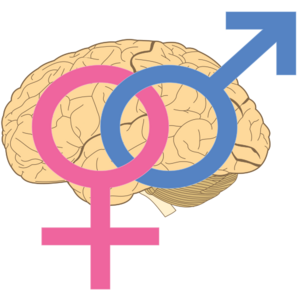Daphna Joel facts for kids
Quick facts for kids
Daphna Joel
דפנה יואל |
|
|---|---|
| Born | January 20, 1967 |
| Known for | The concept of gender mosaic |
| Scientific career | |
| Fields | Behavioral neuroscience, Gender studies |
| Institutions | Tel-Aviv University, Israel |
| Doctoral students | Yael Niv |
Daphna Joel (born January 20, 1967) is an Israeli neuroscientist. She is known for her research that suggests there is no single "male brain" or "female brain." Instead, she believes human brains are a "mosaic" of different features.
Joel is also a supporter of "neurofeminism." This idea looks at how gender is studied in brain science. She is part of The NeuroGenderings Network. This is a group of scientists who study gender and the brain. They are critical of what they call neurosexism. This means unfair ideas about brains based on gender. Since 2003, Joel has led the psychobiology department at Tel Aviv University.
Daphna Joel's Journey in Science
Daphna Joel started her science journey during her military service. After that, she studied at Tel Aviv University. She earned a bachelor's degree in medical science. Then, she completed her doctorate in psychobiology in 1998. Her doctorate focused on how brain connections are organized.
For 15 years, her main research was about obsessive-compulsive disorder (OCD). Later, she began to ask a big question: Is there really a "male brain" and a "female brain"? Can human brains be divided into two types, like male and female bodies? According to Joel's research, the answer is "no."
One important study that supports Joel's idea was done by Margaret McCarthy. McCarthy found that features in animal brains can change their shapes. This can happen because of things like stress. Joel looked at these findings and other studies. She concluded that if parts of the brain can change from a "female form" to a "male form" under pressure, then dividing brains into male and female types doesn't make sense.
Joel believes the brain doesn't have a fixed sex. She says that while there are differences between male and female brains, these differences are small. They are also not organized in a way that creates two distinct brain types. For example, a large amygdala (a brain part) doesn't tell you anything about another part, like a small hippocampus. Brain features are a mix. They are shaped by sex, genetics, and the environment.
Joel's ideas have been discussed by other brain scientists. Her first study on this topic was published in 2011. It was titled Male or Female? Brains are Intersex. She continues to speak out for a less fixed view of gender in brain science.
Understanding Gender and Society
Daphna Joel is also very interested in gender and feminism. She has said that she held feminist views even when she was young. Joel believes that in many parts of the world, people are often pushed into being "boys" or "girls." This is based on their physical sex.
She thinks that society often divides possibilities into just two parts. Joel believes that in a world without such strict gender roles, there would be many more choices for everyone. People could be more free to be themselves.
In 2009, Joel started groups for psychology students. These groups discussed conflicts between women and men. Later, she created a new way for groups to talk about gender issues. This led her to design a course called "Is pink a girl color?" This course looked at social rules about what is "feminine" or "masculine." It also explored how people's attitudes are shaped by gender. Preparing this course helped Joel start her research into the "male brain" and "female brain" in the early 2000s.
See also
 In Spanish: Daphna Joel para niños
In Spanish: Daphna Joel para niños
- Cognitive neuroscience
- Gender essentialism
- Neuroscience of sex differences


